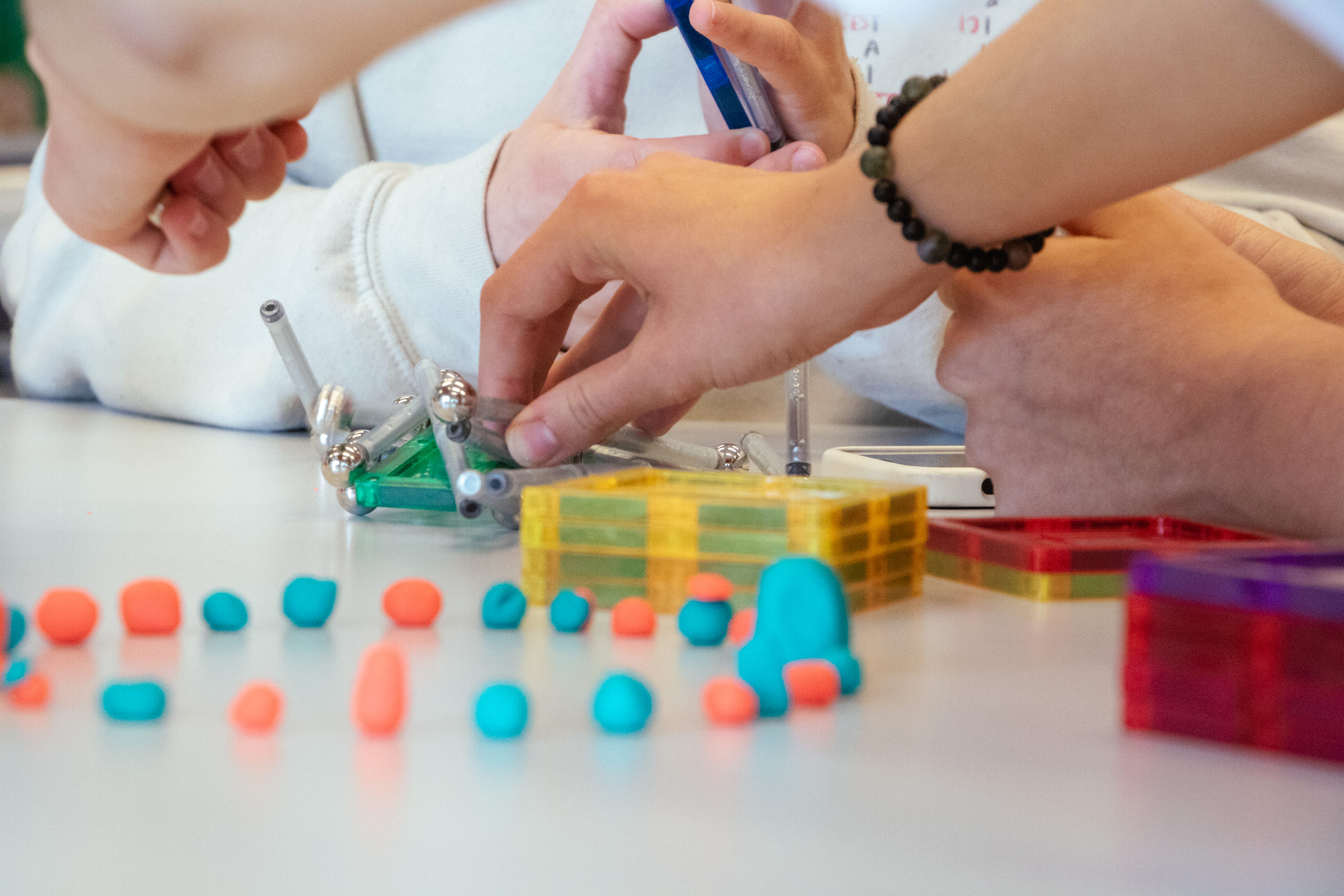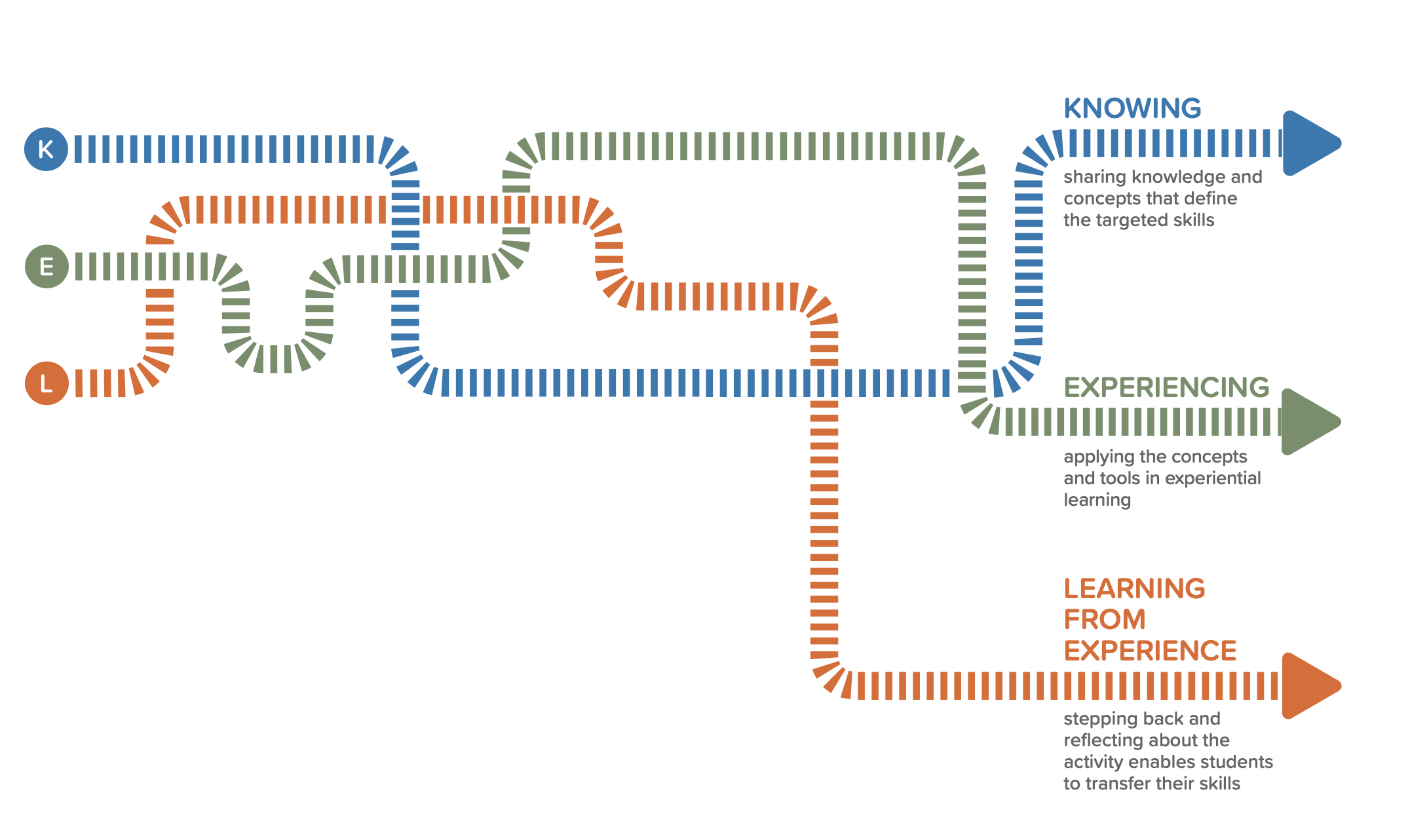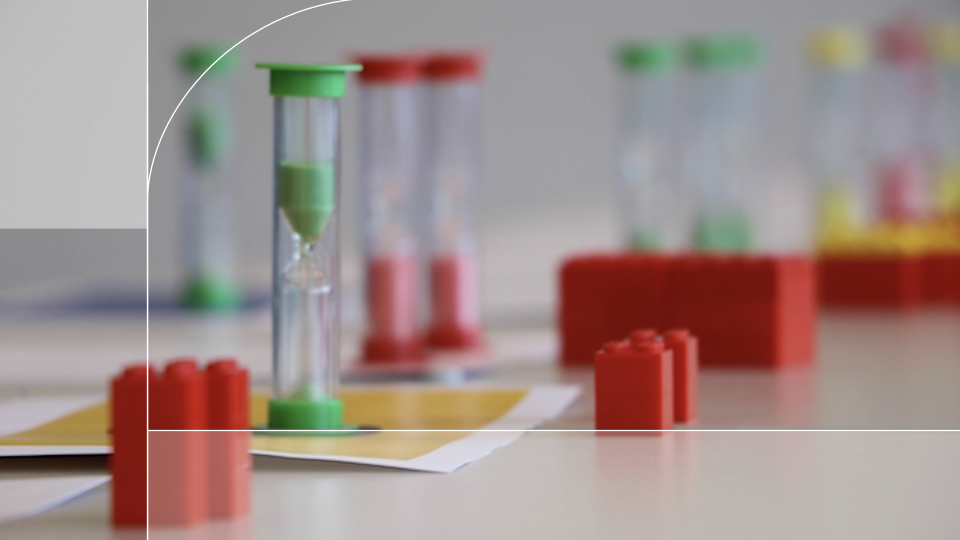The 3T PLAY project develops playful activities with tangible objects to teach transversal skills to engineering students. Embedded in a premier engineering school, we take a research-based approach to identifying skills that are under-addressed in the higher education literature and skills of emerging importance for today’s environmental, social and economic challenges. The trident framework and activity guides have been iteratively developed through empirical observations and implementation, creating open-source resources for the engineering education and research communities.

Engineers and scientists must have more than just excellent technical knowledge and skills to provide leadership and solutions for the challenges faced by society. While most science and engineering courses develop the technical skills specific to each discipline, there is an accompanying set of transversal skills that graduates should master to leverage their skills and knowledge. These competences include, but are not limited to, negotiation, conflict resolution, intra- and interpersonal communication skills, inclusion, and ethical reasoning. While there is strong, multilateral agreement on the importance of these skills for engineers, concern about the development opportunities provided by current engineering programs has been expressed by students, alumni, educators, institutions and accreditation bodies.
The contributions of the 3T PLAY project involve improving how engineering students are taught transversal skills, leveraging empirical investigations to explore current practices and assess interventions. The resources developed by 3T PLAY provide evidence-informed, practical and adaptable approaches to teaching transversal skills to science and engineering students. As illustrated by the 3T PLAY framework [see Figure below], interventions targeting the development of transversal skills are designed to involve 3 types of pedagogical activities.
- Knowing (what is the skill, why it is important, and what strategies can be employed),
- Experiencing (engaging activities that intentionally leverage the skill), and
- Learning from Experience (explicit reflection prompts to help students transfer what they learned to their next project).

Approach
While tangibles are widely used to teach technical skills in engineering, we have found little prior evidence of their application for transversal skills development. Therefore, the 3T PLAY team has worked with instructors in diverse educational settings to create, iterate and evaluate its trident framework for teaching transversal skills using tangibles to create micro-experiential learning opportunities focused on transversal skills. The activities implement evidence-informed approaches including low-stakes experimentation, short feedback loops, iteration, desirable difficulties and opportunity for reflection.
Open access to the 3T Playbook
The activities developed by the project are published as individual chapters (PDF format) via the Zenodo platform. Beta versions are now available, with the finalized versions that will include implementation feedback and evaluation scheduled for fall 2024.
CHAPTER 1
How to develop engineering students’ transversal skills (here)
CHAPTER 2
How to support students to develop skills that improve collaboration, including retrospective discussions (here)
CHAPTER 3
How to support students’ skills for giving constructive feedback, especially when it is difficult to hear (view)
CHAPTER 4
How to support students to develop skills that promote sustainability (view)
CHAPTER 5
How to support students to develop coaching and peer teaching skills (view)
CHAPTER 6
How to support students to develop risk assessment and planning skills, especially for team projects (here)
CHAPTER 7
How to support students’ skills for cultivating psychological safety in their teams (here)
CHAPTER 8
How teachers can use the 3T PLAY trident framework to design activities that develop transversal skills (here)
CHAPTER 9
How teachers can use the 3T PLAY trident framework to design activities that develop transversal skills (view)
3T PLAY Team
3T PLAY is a joint initiative of the Center for Learning Sciences (LEARN), the College of Management, the Teaching Support Center (CAPE) and the Discovery Learning Labs (DLL) Makerspace. The project is kindly supported by the LEGO Foundation, in the context of exploring future skills through new, playful and creative learning approaches.
The 3T PLAY project enjoys strong internal support at EPFL and increasing recognition internationally. The EPFL Vice-Presidencies for Education and Student Affairs and Outreach have put strong emphasis on the need for teaching and learning transversal skills at scale across campus. The integration of 3T PLAY at EPFL is exemplified by its executive board members, which include the unit heads of the Center for Career and Transversal skills(CCTC), DLL, CAPE, LEARN and the emeritus director of the College of Management. Externally, 3T PLAY activities are facilitated by a growing number of institutions located in 7 countries.
Siara Isaac – Project manager & researcher
Yousef Jalali – Researcher
Joely de Lima – Pedagogical Advisor
Valentina Rossi – Pedagogical Advisor
Marta Ruiz Cumi – Administrative support
Contacting us
Please do reach out if we can support you to adopt/adapt 3T PLAY materials for your own context or if you have feedback to share.
The project is kindly supported by the LEGO Foundation, in the context of exploring future skills through new, playful and creative learning approaches.
